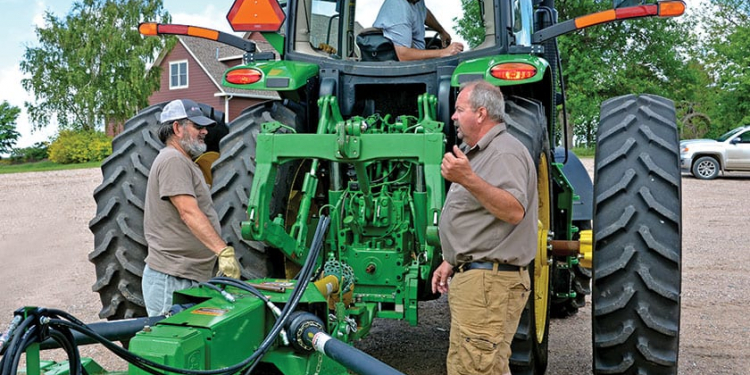Labor is a puzzle of increasing difficulty for American farmers. Three growers with significant acreage in Arkansas, Missouri and Tennessee offer perspective on labor challenges.
Tennessee’s Darren Grogan
On rolling ground in the river hills of western Kentucky, Darren Grogan, 47, alongside father, Bobby, 74, and brother, Brian, 43, grows roughly 20,000 acres of corn, soybeans, and wheat.
Labor is a top-drawer issue for the Carlisle County grower. Finding, training, and retaining good employees is the single greatest challenge facing growers today, he says. Out of the gate, Grogan places heavy emphasis on character and untrainable qualities. “Once you find good character, there must follow a combination of good compensation and responsibility. Do not underestimate responsibility, because good people want to make a difference in what they do.”

“The golden rule definitely applies to retaining good employees,” Grogan adds. “Again, those with good character will demand to be treated with respect. Compensation and benefits cannot be very far down the list either. People must make money and support their families. If an employee does not put their family first, they do not possess the proper character, in my opinion.”
Arkansas’ Perry Galloway
On a sandy ridge running between the Cache and White rivers, Perry Galloway, 51, grows 8,000 acres of corn, grain sorghum, rice, soybeans and wheat in Gregory, Ark., roughly 80 miles northeast of Little Rock.

“I treat employees with respect and that’s the way I’d want to be treated. I’ll never ask anyone to do something that I haven’t done, can’t do or won’t do,” Galloway says. “It’s an important relationship and everyone needs to realize it’s a team effort.”
Missouri’s Allen Below
In southeast Missouri’s Bootheel, 20 miles southwest of Sikeston, Allen Below, 50, farms in tandem with two partners, and grows 7,000 acres of corn, cotton, peanuts, popcorn, rice, and soybeans. In addition, Below is the co-owner of Stoddard County Cotton Co., a gin in Bernie.

“As farmers, we all try to figure out the labor puzzle. Employees with ag experience, and sometimes a degree, are always drawn to jobs in the industry with corporates,” he says. “Truth is, we’ve got to offer some of the perks of the big companies, and that can mean good pay, health insurance and retirement. In return, I expect much more than a tractor driver. Yield maps, reading soil tests, running variable rate rigs, and so much more is required.”
“One big perk I offer is I’m not corporate and there are no politics or strings, and I’m a simple farming operation,” Below adds. “I want guys to know they’re working for a good ol’ boy, and I need you, and you’ll never be out in the cold. I want to make this a career for them and I want to make enough money to justify their pay.”







